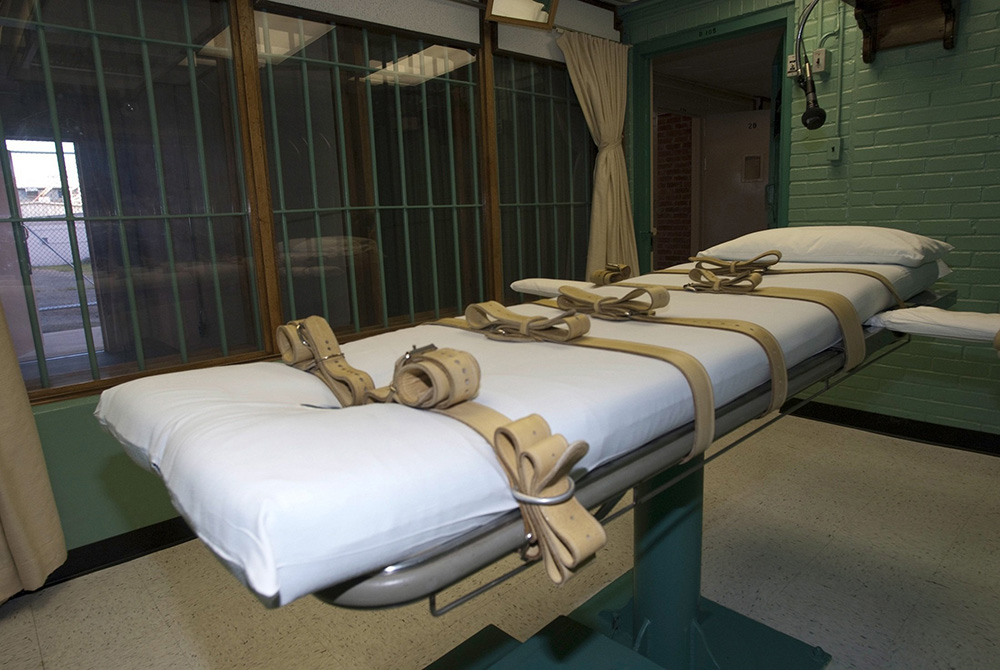
WASHINGTON — On World Day Against the Death Penalty Oct. 10, groups will be gathering in the U.S. to both pray for and discuss ending the nation’s use of the death penalty.
Three of these sessions will take place in Texas on the day the state plans to execute a death row prisoner.
The in-person and online vigils, particularly in San Antonio, El Paso, and Dallas, highlight that capital punishment is still very much in use, especially in Texas, which has the highest rate of executions in the country.
The death penalty has been abolished in 23 states and the District of Columbia but is still legal in 27 states. The federal government and five states have put executions on hold.
Worldwide, the five countries with the most executions in 2022 are China, Iran, Saudi Arabia, Egypt, and the United States, listed in order, according to Amnesty International.
The World Coalition Against the Death Penalty, headquartered in France, started the annual observance against capital punishment in 2003 to mobilize global support. This year’s emphasis examines the relationship between the death penalty and torture as forms of punishment.
The global look at capital punishment is meant to focus on steps made to abolish this practice and how far the effort still needs to go.
Catholic Mobilizing Network, a Washington-based group that works to end the death penalty and promote restorative justice, has a similar focus on both successes at abolishing capital punishment and the work needed to make this happen through the lens of Catholic social teaching.
Their work involves educating Catholics on the issue and encouraging them in advocacy and prayer against the death penalty.
Krisanne Vaillancourt Murphy, executive director of Catholic Mobilizing Network, told The Tablet that while progress is being made to do away with the death penalty in the United States there is still work to be done.
On the positive side, she said Ohio is likely to be the next state to repeal the death penalty if legislation introduced by bipartisan legislators is passed and signed into law next spring.
She said recent polls have shown capital punishment at nearly historical lows and that fewer states are carrying out executions, but she emphasized that this is not all good news.
As of late September, the U.S. has executed the same number of people it did at the end of last year and there are still at least five executions scheduled to take place in the next three months.
Last year, according to the Death Penalty Information Center, there were 18 executions in the country, a record low, and that they have been in only six states — Alabama, Arizona, Oklahoma, Mississippi, Missouri, and Texas.
Vaillancourt Murphy said she has also been disappointed with the federal government’s inaction in ending the death penalty, noting that President Joe Biden touted an anti-death penalty platform in his election campaign.
She said federal prisoners have not been executed under this administration, but federal prosecutors have sought the death penalty and won it in the case of Robert Bowers, the gunman who shot and killed 11 people at Pittsburgh synagogue in 2018.
They also tried to get a death sentence, but the jury didn’t unanimously vote for it, for the man inspired by the Islamic State group who attacked a New York City bike path in 2017.
She said Catholic Mobilizing Network has been educating Catholics on this issue and getting them involved in working to end the death penalty, but that is not the end of their work as they also emphasize restorative justice and are introducing Catholics to this concept.
“There is a lot of excitement and energy for this,” she said, adding that her organization is co-hosting a national conference on restorative justice Oct. 5-7 in Minneapolis. Restorative justice focuses on helping offenders take responsibility for their actions and gives them a chance to redeem themselves.
“Ending the death penalty is one part of our work, building a culture of life is our path forward,” Vaillancourt Murphy said.
She also said that the work is an ongoing effort, not something just for one day a year or even for Respect Life Month, celebrated by the Catholic Church in October.
“We need to be consistent,” she said. “We need to take action and be persistent in our witness.”
To find out more about faith-led events across the country on World Day Against the Death Penalty visit: catholicsmobilizing.org/posts/11-faith-led-events-world-day-against-death-penalty
